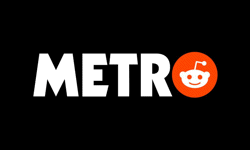The Independent took the lead in the UK press with online editor Martin King announcing in May that on independent.co.uk, the free speech free-for-all for anonymous posters was to end. King said the website could no longer “justify giving a platform to those who abuse it”.
King made clear that the Independent’s decision was based on the need to stop abusive comments: “Websites have been encouraging cowardice. They allow users to hide behind virtual anonymity to make hasty, ill-researched and often intemperate comments regardless of any consideration for personal hurt or corporate damage.”
Independent.co.uk changed its logins to encourage comments from individuals or even official bodies using their Facebook or Twitter accounts – with other options for Yahoo or Open ID log-ins. There is also a Disqus option, where those making comments must be validated via their email.
In the changes to the Times and the Sunday Times websites with the introduction of its paywall, the paper said it also would no longer allow anonymous posting or use of pseudonyms. Times assistant editor Tom Whitwell said that the paper aimed to build real, meaningful community relationships between journalists and readers. "The principle is to encourage comment under real names," he said.
The Independent and the Times were reflecting growing opinion in the US. Arianna Huffington, of the Huffington Post website, claimed: "Anonymity is just the way things are done. It’s an accepted part of the internet, but there’s no question that people hide behind anonymity to make vile or controversial comments."
Leonard Pitts Jr of the Miami Herald commented: “Message boards have become havens for a level of crudity, bigotry, meanness and plain nastiness that shocks the tattered remnants of our propriety.”
The Boston Globe in an editorial in May reflected how: “Anonymity on the internet has led to an explosion of uncensored information. It helped expose corporate secrets and human rights abuses under repressive regimes. It has also, however, turned much of the internet into the online equivalent of a room of bullying high schoolers, where malicious accusations and petty grievances are the norm.”
Threat to whistle blowers
The crackdown on anonymous postings is not unanimous across the UK national press. Steve Busfield, Guardian News and Media head of media and technology, says: “Removing anonymity from comment posting will undoubtedly result in a fall in user comments. If I were to be cynical, I could point out that the Independent website generates few comments anyway, while the Times will already see a substantial fall in user interaction with the erection of its paywalls.”
“It might be that comments will become slightly politer if the mask of anonymity is removed. But does it really gain other readers to know the name of a member of the public posting a comment hundreds of miles away? Removing commenter anonymity will also make threads less interesting, less revealing. There will certainly be less whistleblowing.”
David Higgerson, head of multimedia at Trinity Mirror (which doesn’t insist on real names, but does make posters created a profile and have it activated), isn’t so sure about the threat to whistleblowing, “as we have clearly marked 'send us your stories' areas where people can securely post information they wish to send to us.”
Some believe losing anonymity for posters will harm one of the great bonuses of the internet: content generated by readers which is valid, authentic and can only be supplied when their identity is protected. This is particularly true of the regional press, industry websites and B2B magazines.
Jo Wadsworth, web editor of the Argus, Brighton, says of the moves by the Times and the Independent: “It's definitely an interesting experiment. No system can guarantee real names, but only the most persistent trolls will go to the trouble of inventing personas to re-register - and shelling out for the privilege in the case of the Times.
“Some of the most valuable comments, news-wise, are left anonymously - tip-offs, personal accounts of traumatic experiences, etc. If I were implementing a real-names policy, I'd definitely want to retain a way for people to post these, even if these were post-moderated.”
Building safeguards
Samantha Shepherd, digital projects co-ordinator at the Bournemouth Daily Echo, admits journalists are divided on the issue. “Anonymity is a great bone of contention in our office. Most reporters vehemently think comments shouldn't be anonymous and everyone should have to use their real names. But I disagree completely.
“I think there should be a rule that your registered email address is regularly used (we get a lot of people who set up an email specifically to register and then never use it again, so we have no means of contacting them with a warning, or about a complaint). I also think we need better systems for banning users completely when they're clearly just trouble makers.”
She says the Echo generated many comments when it ran a story about jobs under threat at a bank, a big local employer, because they could be posted anonymously. “We had lots of comments [about the bank] but I'd bet half of them wouldn't have spoken up if we made them use their real names. If you're an admin worker at the council, you wouldn't want your boss to see your name on a comment criticising council political policy - but that doesn't mean you're not entitled to express an opinion.”
Shepherd continues: “Do people get more abusive because they're anonymous? Often, yes. But I think if we could make sure we have legitimate contact details for all commenters and couple that with a no-nonsense zero tolerance policy on personal abuse you could manage that aspect.”
David Higgerson adds: “Insisting on the creation of profiles discourages troublemakers and encourages higher quality UGC as a result. It also limits the impact spam can have on our sites, which also makes our sites a more welcoming environment for users to interact.”
Paul Linford, publisher of HoldtheFrontPage, the industry website owned by the four biggest regional newspaper publishers, Trinity, Northcliffe, Johnston and Newsquest, says anonymous posters can add important information to a story.
“The difficulty I have with allowing anonymous postings is that it can give the poster an element of power without responsibility. By and large, I think people should have the courage to say who they are - particularly when they are criticising people and organisations.
“That said, I acknowledge that there are situations where allowing anonymous comments can help to amplify a story. There have been occasions on HTFP where anonymous posters have been able to come on the site and fill in some of the background to a story in a way they would not have been able to do had they been required to give their names."
HTFP got good background information on the sudden departure of the MD of a major regional newspaper publisher via anonymous postings after the company had issued only a one line statement.
Simeon Brody, community editor of RBI’s Community Care, the magazine and online site for social workers, points out the contracts of many of his readers say they cannot speak to the press.
“Contributors to Community Care’s CareSpace discussion forum for social care professionals generally choose to remain anonymous. This is because many local authorities ban social workers from making public statements or speaking to the media. Social work is a particularly stressful job and without the ability to contribute anonymously, social workers would lose a valuable opportunity to share useful information and support each other.
“CareSpace has been an excellent resource for us in terms of generating stories. Anonymous posters may feel more confident about raising contentious issues – a recent example being the use of a council-funded budget to pay for sex workers. I understand that insults and abuse can be a bigger problem on anonymous forums but generally we’ve not found this to be too much of a problem. Users can be as keen to protect their online reputation as they are their real world reputation.
“Having said all that, I would probably prefer if people were open about who they were on forums. Unfortunately many local authorities simply do not allow social workers to do that, so at the moment they have little choice.”
Trinity Mirror’s David Higgerson agrees about the importance of a poster’s online reputation: “When we piloted our work on Flickr three years ago, users were quick to say they'd rather see their Flickr name under the photos which appeared in print, rather than their real names. For some people, the online profile is a brand which they use across several sites.”
Rewarding the best posters
In September, Reuters, the international news agency, introduced a new process which gives special status to readers whose comments have passed muster in the past.
Richard Baum, Reuters global editor for consumer media, said: “Like many major news publishers, we’ve agonised over how to balance our enthusiasm for reader comments on stories with our belief that few people would benefit from a free-for-all. Where we struggle is with comments that we believe contribute nothing useful to the conversation.”
Baum said: “Our new process grants a kind of VIP status on people who have had comments approved previously. When you register to comment on Reuters.com, our moderation software tags you as a new user. Your comments go through the same moderation process as before, but every time we approve a comment, you score a point. Once you’ve reached a certain number of points, you become a recognised user and your comments will be published instantly from now on.”
The highest scoring commentators will be classified as expert users, earning additional privileges.
All publishers share the same dilemma: How to stop the abuse of freedom of speech while protecting those readers who can expose abuses of power and generate important stories only if their identity is protected.
Publishers are coming up with a variety of solutions to counter abuse but it is often the publications and websites closest to their readers, such as the local press and specialist magazines, that are most reluctant to give up anonymous postings because of the important content it can generate.
For international news agencies, national and local newspapers, magazines or industry websites, there is not a “one size fits all” solution to the problems of anonymous abusive postings.
But that “conversation” on the web, that publishers so encouraged, has been rudely interrupted.










